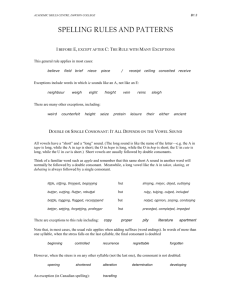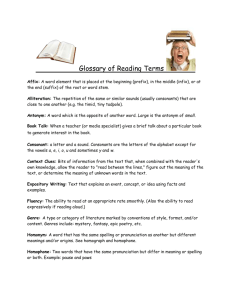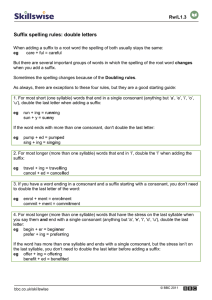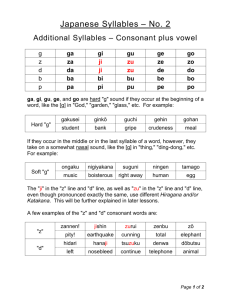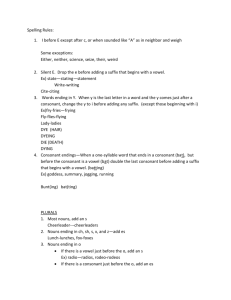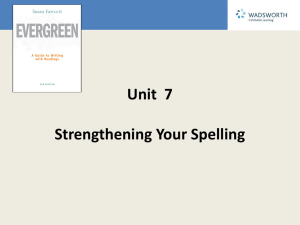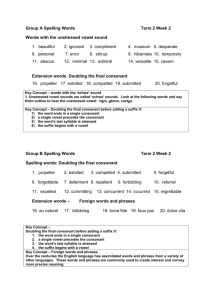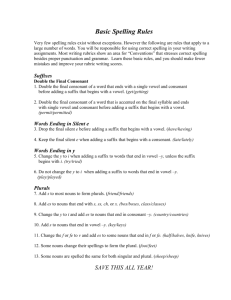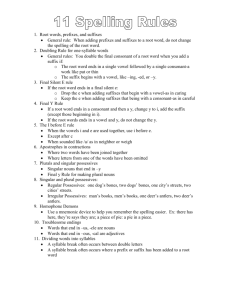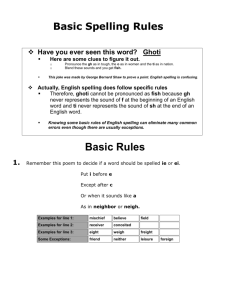File
advertisement
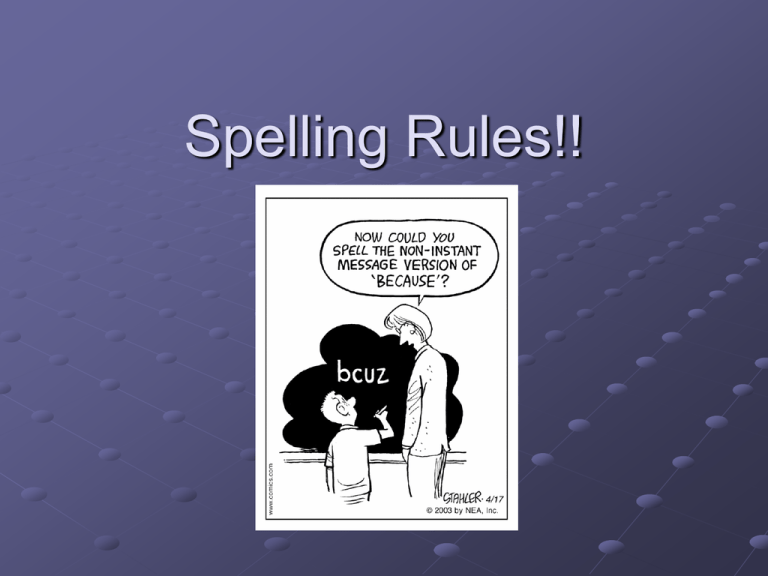
Spelling Rules!! Rule #1 Write i before e except after c, or when sounded like “ay” as in neighbour and weigh. Examples field, achieve, believe, chief, piece, pierce, niece, relief, yield, shield, priest BUT, AFTER “C”, use “ei”: receive, deceive, perceive, ceiling, conceit WHEN ei SOUNDS LIKE “AY”: sleigh, freight, eight EXCEPTIONS: Rottweiler, seize, either, weird, height, foreign, leisure More exceptions… caffeine, science Remember… *When the ie/ei combination is not pronounced ee, it is usually spelled ei. Rule #2: Double a final consonant before adding a suffix that begins with a vowel if: The consonant ends a one syllable word (eg. bat) The consonant follows a single vowel (shop) The consonant ends a stressed syllable in a multi-syllable word (eg. begin) Examples: bat – batting; shop- shopping; begin – beginning Rule #3: If a word ends with a silent e, drop the e before adding a suffix which begins with a vowel. Examples: like – liking – likeness; use – using – useful; nine – ninety, nineteen Notice: you do not drop the e when the suffix begins with a consonant. Exceptions include judgement, truly, argument, and ninth). Rule #4: When y is the last letter in a word and the y is preceded by a consonant, change the y to i before adding any suffix except those beginning with i. Examples: fry – fries hurry- hurried lady – ladies happy – happiness beauty – beautiful Rule #5: The suffix “able” is added to words when there is a clear base word. Example: agree + able = agreeable change + able = changeable Note: When there isn’t a clear base word, add “ible”: Examples: permiss + ible = permissible ed + ible = edible incred + ible + incredible Rule #6: The suffix “ally” or “ly”: words ending in c usually add “ally” to form the adverb: basic – basically; drastic – drastically; music -- musically Other words generally add “ly” to form the adverb: complete – completely; natural – naturally

